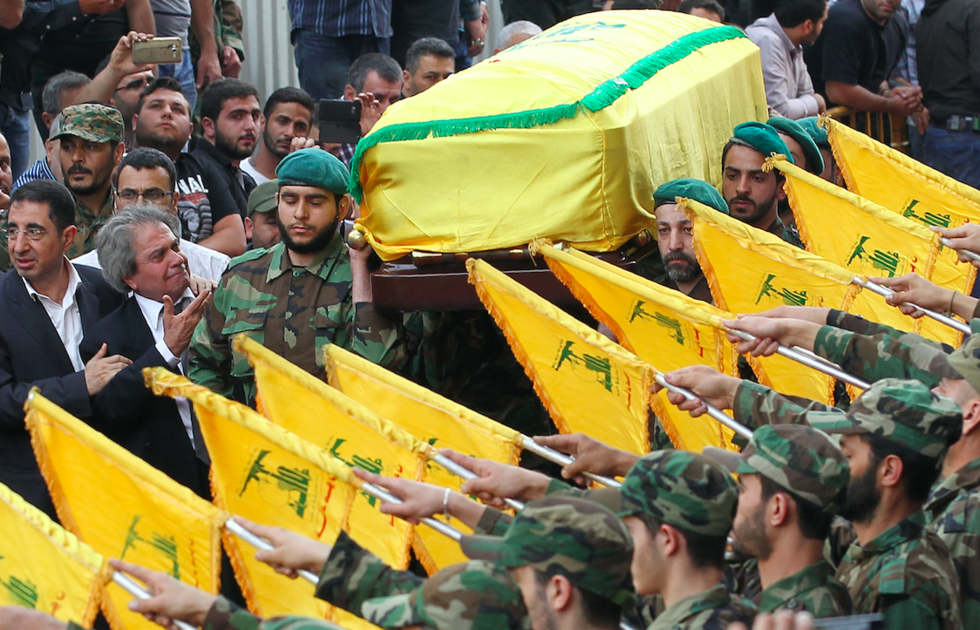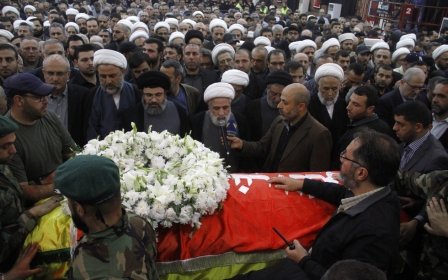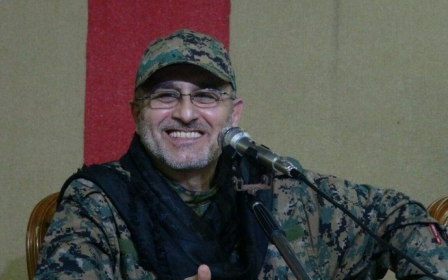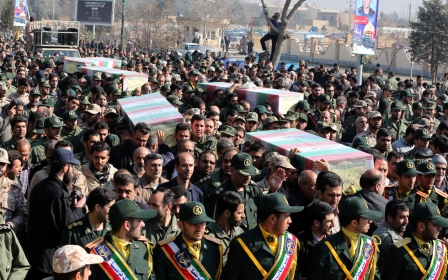Hezbollah says Badreddine was slain by rebel Sunni militant artillery fire

Mustafa Badreddine, a top Hezbollah military commander slain in Syria this week, was killed by rebel Sunni militant artillery fire, Hezbollah said Saturday, contradicting reports that Syrian or Iranian forces may have been responsible.
"Investigations have showed that the explosion, which targeted one of our bases near Damascus International Airport, and which led to the martyrdom of commander Mustafa Badreddine, was the result of artillery bombardment carried out by takfiri [militant Sunni] groups in the area," a statement by the Shia Muslim group said. Hezbollah is allied with the forces of Syrian President Bashar al-Assad against several Sunni rebel groups including Islamic State (IS) and al-Qaeda-affiliated Nusra Front.
Hezbollah-run al-Manar TV also reported that unidentified Sunni militant groups were behind the shelling of the Hezbollah base where Badreddine was killed.
That claim differs from one made by made by Israeli news site Debkafile, known to be close to the country's intelligence apparatus, which on Friday cited Israeli military sources as saying that Badreddine had been killed by Syrian or Iranian forces after an argument about Hezbollah’s presence in Syria.
According to those reports, Badreddine had been planning to withdraw many of Hezbollah's forces back to Lebanon after suffering heavy losses, possibly a third of his fighters. The area where he was killed is technically under the control of the Syrian army and is also believed to host Iranian fighters.
The closest rebel positions are seven kilometres away in the Eastern Ghouta, which has been rocked by bloody clashes between al-Nusra-backed rebel group Faylaq al-Rahman and Jaish al-Islam in recent months.
Italian news agency AKI on Friday cited Syrian military sources as saying that Badreddine was probably killed by a SPICE bomb, an Israeli-developed system for converting unguided bombs into precision guided ones.
Badreddine was on a US terror sanctions blacklist, was a key suspect in the 2005 assassination in Beirut of Lebanese ex-premier Rafiq Hariri, and was also one of those most wanted by Israel. His predecessor was killed in Damascus in a 2008 bombing widely blamed on Hezbollah's regional arch-foe Israel.
Hezbollah, however, stressed that rebel artillery fire was behind the slaying of Badreddine and vowed to keep up the fight against what it called "criminal gangs" in Syria.
"The result of the investigation will only increase our determination and will to pursue the fight against those criminal gangs until they are defeated," Hezbollah said in the statement. "It is the same battle against the American-Zionist scheme in the region, which the terrorists are spearheading.”
Iranian Foreign Minister Mohammad Javad Zarif praised Badreddine, saying that he was "all passion and devotion" and that his assassination would only help to strengthen the resistance.
Thousands of people flocked to the streets of Beirut to attend Badreddine’s funeral Friday.
Hezbollah has supported Assad for years and is known to have been helping him on the ground since at least 2012. The Lebanese organisation is credited with helping to turn the tide of war and rolling back rebel advances near Lebanon and Damascus. Hezbollah expert Waddah Charara said the Shia militant group has sent between 5,000 and 6,000 combatants to Syria.
The group has paid a heavy price for its support, with IS and al-Qaeda both launching attacks on Shia majority areas in Lebanon that have killed more than 100 civilians.
Hezbollah does not release Syrian casualty figures, but Israeli estimates last year suggested that as many as 1,500 Hezbollah fighters – or about a third of the group’s force in Syria - had been killed. Other sources suggest the figure could now be as many as 2,000, while data obtained from Iranian open sources put the casualty figure lower at 865 fighters between 30 September, 2012 and 16 February, 2016.
New MEE newsletter: Jerusalem Dispatch
Sign up to get the latest insights and analysis on Israel-Palestine, alongside Turkey Unpacked and other MEE newsletters
Middle East Eye delivers independent and unrivalled coverage and analysis of the Middle East, North Africa and beyond. To learn more about republishing this content and the associated fees, please fill out this form. More about MEE can be found here.




